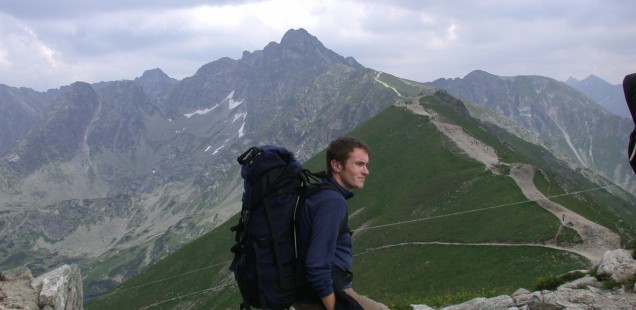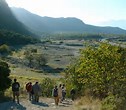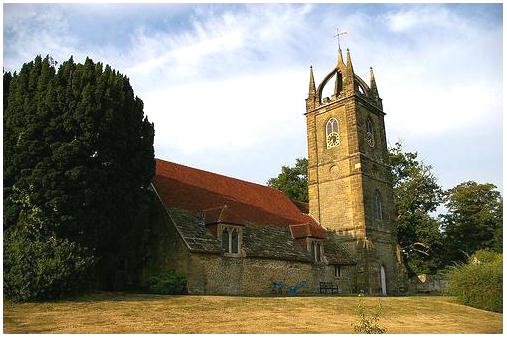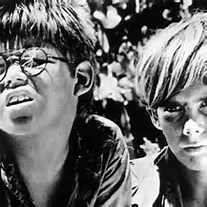
The Long Walk Across Europe
In December of 1933, a young man set out from England on a great adventure. His intention was to walk clear across the continent of Europe, all the way from Hook of Holland to Constantinople (Istanbul). In the pack he carried upon his back were nothing more than a few changes of clothing, letters of introduction, books, and notebooks.
It had been his decision to leave England, and it was his wish to travel light. He had a bit of money, not a great deal, but the comforting promise of a modest allowance being sent to him at stopping points along the way. He was leaving because his dreams of making it as a writer in London had not come to fruition, and because before this he had been thrown out of school for dating a local girl. He belonged to that race of men and women (Downton Abbey, Wills and Kate) with which the world remains eternally fascinated: the English upper class.
The young man in question, Patrick Leigh Fermor, made it to Constantinople almost exactly two years later, arriving in January of 1935. He had indeed walked the entire way, stopping a little longer in a place he liked if he liked it, skipping things he wasn’t particularly interested in, except he was interested in practically everything. Forty years later, he published a trilogy of books about this journey (A Time of Gifts, Between the Woods and the Water, The Broken Road), tales he carefully pieced together from the many notebooks he’d filled lying in hay lofts on rainy days or lazing in the sun of a Balkan meadow. When you read these books now, almost eighty years after Leigh Fermor walked out into the unknown, you’re still struck by the excitement and the exuberance of his account, the delight he took in sleeping four nights in the rough and the fifth at a castle owned by a friend of a friend. You’re inspired by his wonder at the sights and sounds of the countries he passed through, the passion he had for their art and architecture, their peoples and customs, and the precision with which he noted down so much of what he saw and did. You are struck by his leisure.
He was by no means the first Englishman to go off to the Continent of Europe to put the finishing touches to his education, but he was perhaps the first to do it Lonely-Planet style (when he wasn’t enjoying the hospitality of the local gentry). He was privileged, to say the least, privileged in education and background, privileged in his contacts, privileged in the knowledge he could and would go home to tell the tale of his odyssey to an admiring crowd. He was the first backpacker in the sense in which we now understand this term, the first son of affluence to try to prove himself by living on the least he could manage.
And so, the decades fly by and a summer spent back-packing through Europe has become a rite of passage for another, much larger class of people: the sons and daughters of well-to-do first-world countries, countries in which no wars are being waged, no one is living in refugee camps, and no one is being politically persecuted.
Living on $10/day, sleeping on a hard mat under some trees, sitting groggily in a cafe sipping a morning coffee has retained its romantic aura for the American or European college student trying to improve themselves through simultaneous exposure to hardship and culture.
In these last months, however, we’ve witnessed another sort of walk across Europe, this one starting from the other end and not in winter for then the seas would be too high. The exodus is coming from and through Turkey and the goal of choice is Germany or England even though many of the migrants understand they might have to make do with somewhere else.
The migrants are by and large leaving against their will (life in the countries they are coming from: Afghanistan, Ethiopia, Iraq, the Syrian refugee camps in Lebanon, Jordan and Turkey) is unbearable. They’re traveling light because they have to, because their houses have been bombed, or they had to flee in the night and hadn’t the luxury to take more than a few things. They have no money and, for the time being, no prospects. They’re dependent on the kindness of strangers, the kindness of the grown-up backpackers who now wear suits and ties and occupy the European and American corridors of power.
Some countries have done better than others in welcoming the steady stream of migrants. Greece, a country struggling with its own economic travails sits on the front line, the easternmost entry point for the thousands fleeing misery. Like the farmer who handed me a warm pear thirty years ago, the Greeks have gone above and beyond, their ancient traditions of hospitality so deeply ingrained that they could do no other. The Hungarians, on the other hand, have embarrassed themselves, the Finns and the Danes as well. The Germans and Swedes have risen to the occasion, agreeing to take the largest number of people. Great Britain recently upped her migrant quota. Even America has had to confront her 9/11 demons and pledge to take more refugees from the Middle East.
Adjusting to life in any of these countries will be desperately hard as many an immigrant who’s had to do it can attest. Yet still they come, an ever more desperate stream of humanity, with no time to stop at churches, or dally on the banks of streams. They claw their way onto trains, shimmy under barbed wire fences, and collapse in the cobbled courtyards of European cities: hungry, frightened, weary before they began.
It’s a long walk across Europe when you don’t carry privilege in your bags, made longer still when you suspect that the chances of getting home again are very likely nil.





I love this and am sharing it with my students; I have also put Fermor’s trilogy on my long, long, long list of books to read. Thank you! Hope you are well!
Love,
MP